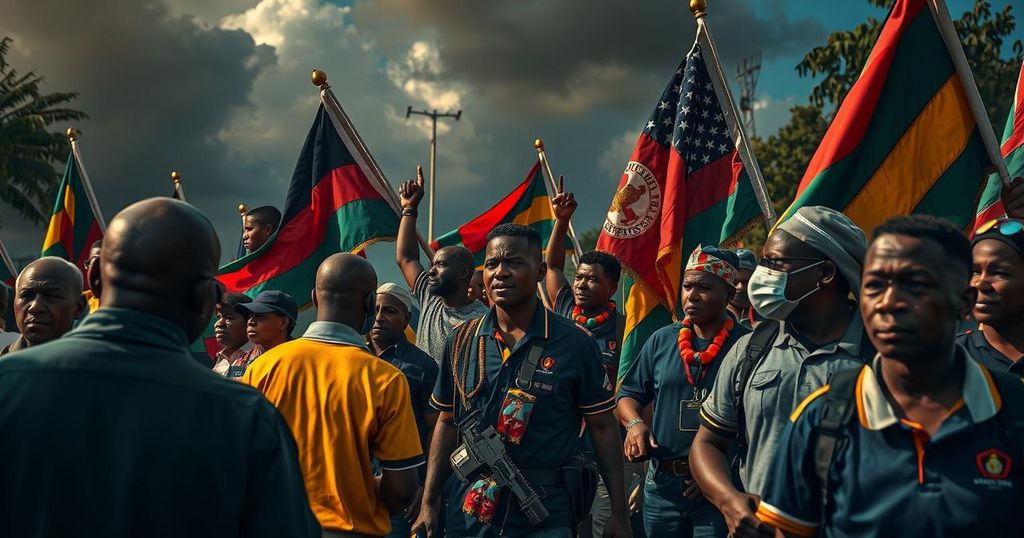Mozambique Opposition Figures Killed Amid Election Dispute and Growing Protests
Mozambique faces heightened tensions following the murder of two opposition figures amid disputed election results, with the Podemos party rejecting provisional estimates favoring the ruling Frelimo party. Calls for a nationwide strike have been issued, raising concerns over potential violence during upcoming protests.
On Saturday, the escalating tensions in Mozambique surrounding recent election results culminated in the tragic killing of two opposition figures. Elvino Dias, a lawyer representing the Podemos party, and Paulo Guambe, a party official, were shot while traveling in a vehicle within the Bairro da Coop neighborhood of the capital, Maputo. These brutal killings have intensified the already charged atmosphere as the Podemos party, led by its presidential candidate Venâncio Mondlane, has vehemently rejected the provisional results which suggest a significant victory for the ruling Frelimo party, which has maintained a tight grip on power for over fifty years. In response to the disputed election results, the Podemos party has called for a nationwide strike set for Monday. This violent incident has drawn attention from human rights groups, including the Mozambican civil society election observing group, More Integrity. Adriano Nuvunga, the director of the Center for Democracy and Human Rights, characterized the killings as a “cold-blooded murder” and detailed that approximately 10 to 15 bullets were fired, resulting in the immediate deaths of the victims. Human Rights Watch has also corroborated the details surrounding the attack. As it stands, the latest election tallies indicate that Frelimo is securing victories across all eleven provinces, with its candidate, Daniel Chapo, expected to win the October 9 election. However, external observers have raised significant concerns about the election’s legitimacy, citing allegations of vote-buying, intimidation, inflated voter rolls in politically favorable areas for Frelimo, and a lack of transparency in the electoral process. Historical trends paint a troubling picture, as similar issues have plagued past elections since Mozambique transitioned to a democratic system in 1994 after enduring a lengthy period of autocratic governance. The final election results are anticipated to be disclosed on October 24, but the safety of Monday’s protest remains uncertain, with apprehensions that it may devolve into significant violence. Human rights organizations have previously documented instances in which Mozambique’s security forces have resorted to lethal force against political demonstrators, especially following contentious local elections last year.
The recent violence in Mozambique underscores the deep-seated political unrest stemming from disputed election outcomes. The Podemos party’s challenge to the long-dominant Frelimo party reflects a broader struggle for democratic accountability in a country that has experienced continuous governance by the same political party since the early 1990s. This systemic lack of political turnover has led to skepticism concerning electoral integrity, drawing scrutiny from both domestic and international observers, who note recurring patterns of electoral fraud and repression of dissent.
In summary, the brutal murder of two opposition figures amidst ongoing political turmoil in Mozambique highlights the dire consequences of electoral disputes and the atmosphere of violence that often accompanies such tensions. As the nation braces for anticipated protests, the calls for justice and clarity in electoral processes reflect a populace increasingly unwilling to accept the status quo. The international community and human rights organizations continue to monitor the situation, advocating for democratic reforms and protection of civic rights.
Original Source: www.theguardian.com




Post Comment